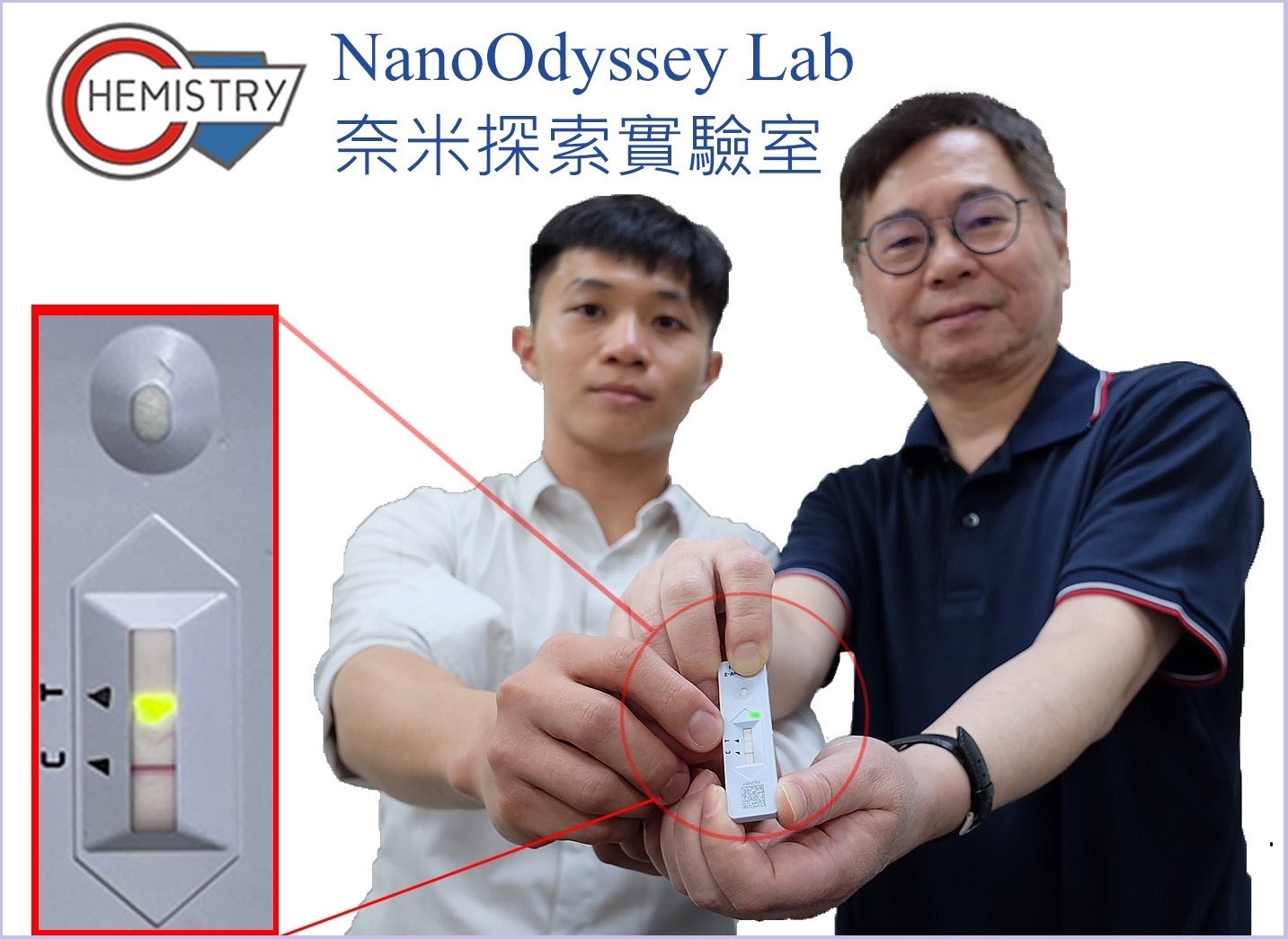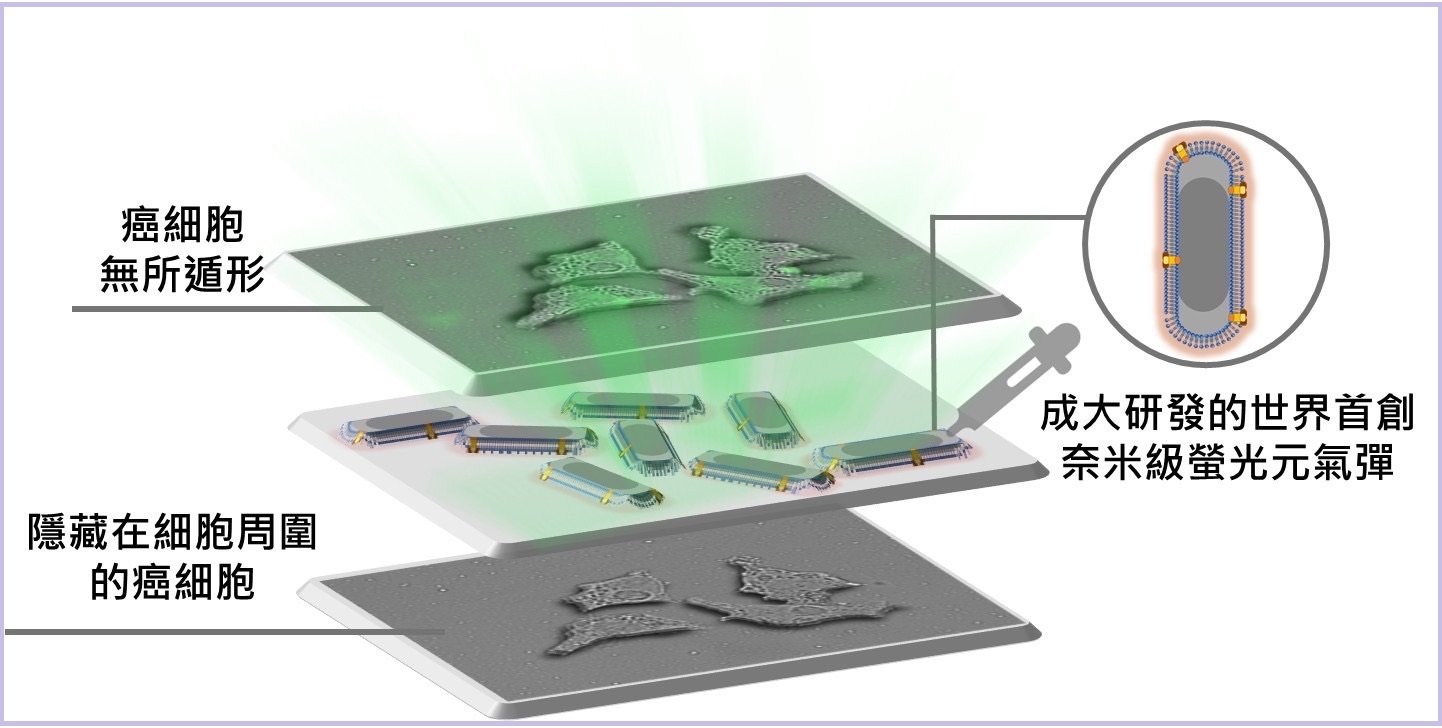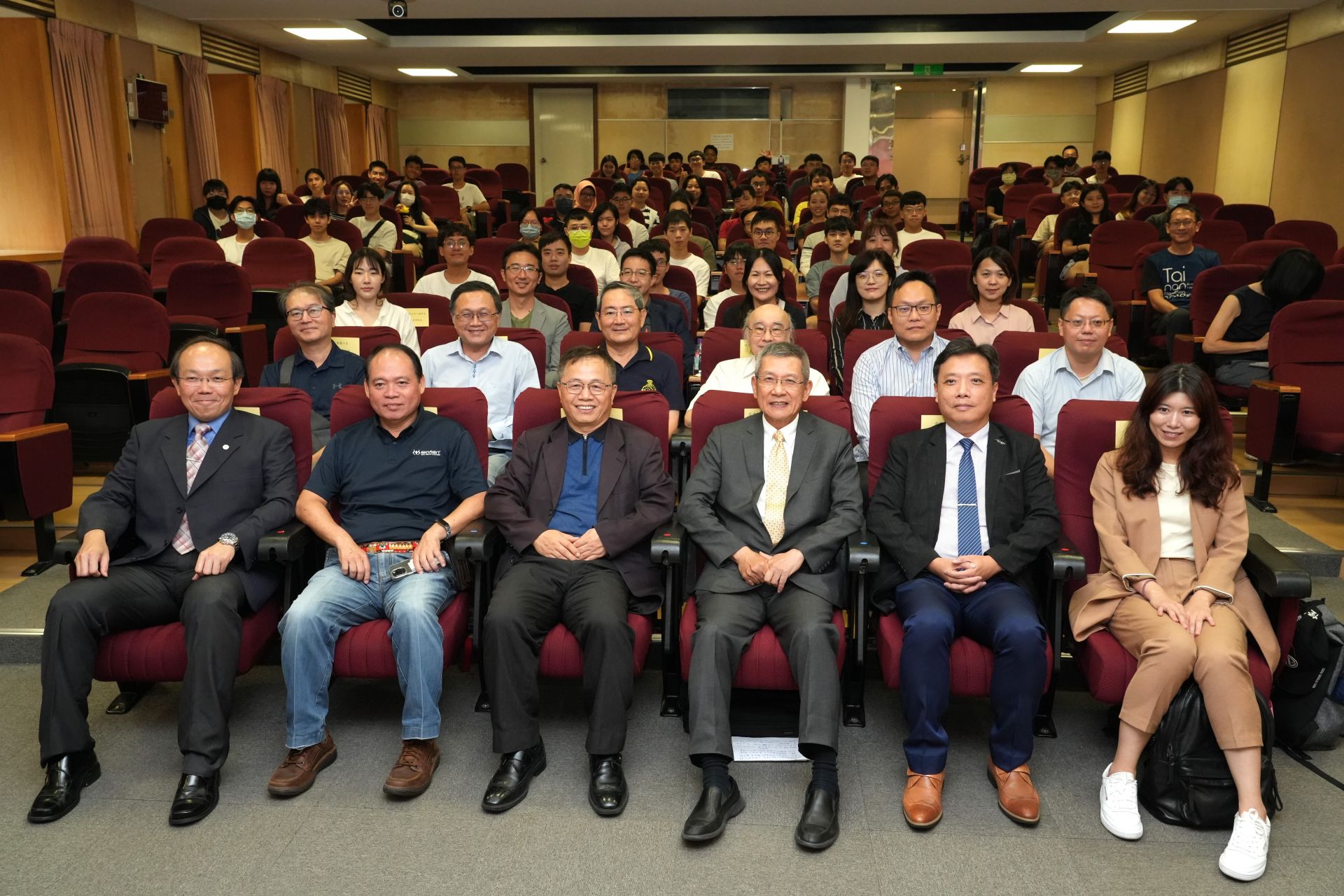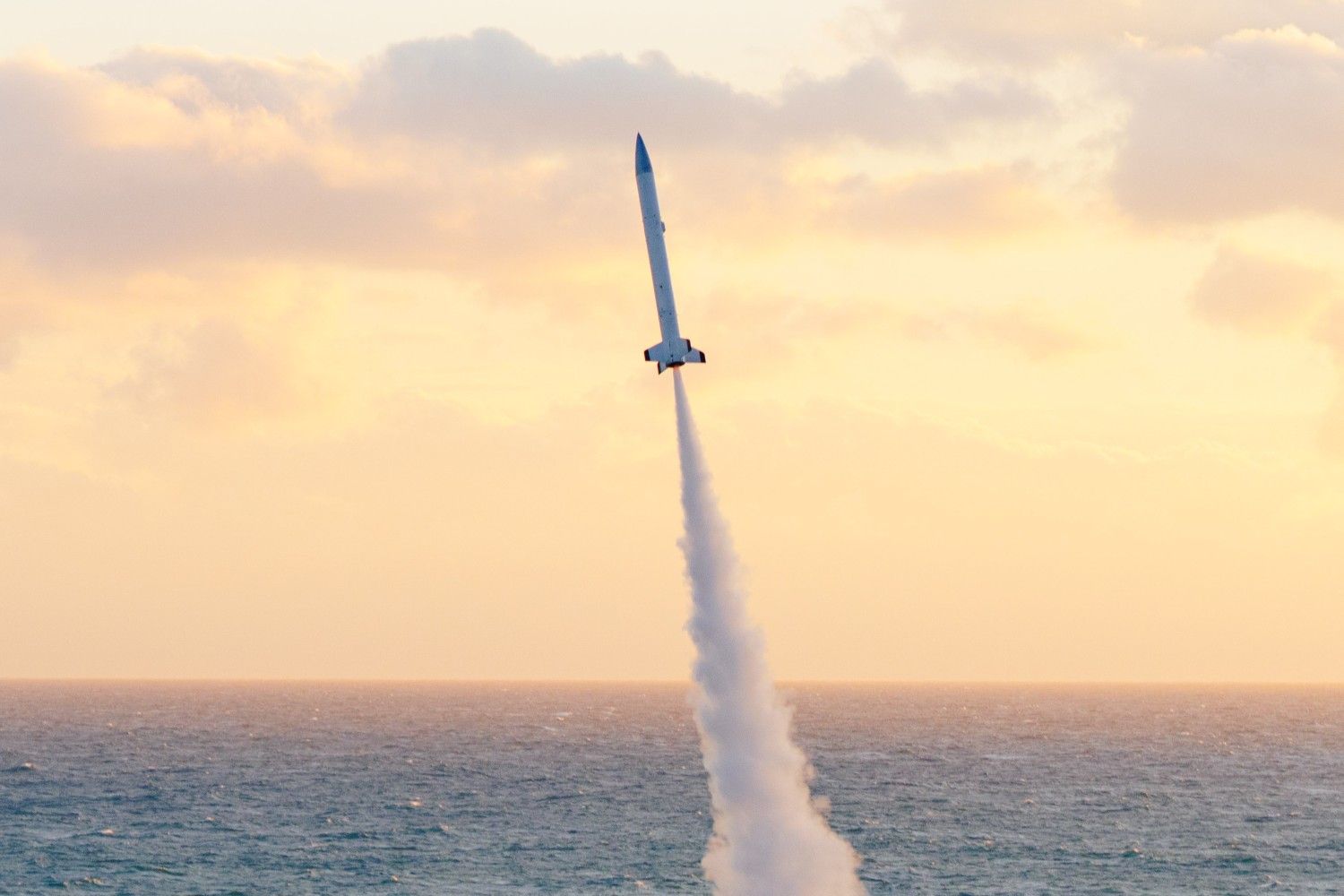SDG9
NCKU's groundbreaking nano-scale fluorescent energy bomb represents a major breakthrough in early screening technology.
According to the latest global cancer statistics from the International Agency for Research on Cancer (IARC) of the World Health Organization in 2020, there were 19.29 million cancer cases worldwide, with over 10 million deaths, making cancer the leading cause of death in Taiwan for 41 consecutive years.
Nano-technology presents a new hope in the 21st century. The world's first nano-scale fluorescent energy bomb developed by Professor Chen-Sheng Yeh (scopus)'s team from the Department of Chemistry at NCKU coats rare-earth element NaYF4
,Er nanoparticles with discharge bacterial membranes to enhance the up-conversion particle fluorescence mechanism. This composite nanoparticle acts like a "potent fluorescent energy bomb," enabling cellular fluorescence imaging and enhancing disease detection sensitivity, thus leaving no room for early diseases to escape. Published in the prestigious journal Advanced Materials, this breakthrough showcases Taiwan's significant progress in nano-technology on the global stage.
Professor Chen-Sheng Yeh, along with Assistant Professors Hong-Kang Tian and Li Wei-Peng from the Department of Chemistry at Kaohsiung Medical University, overcame conventional experimental frameworks to create nano-scale fluorescent energy bombs approximately 60 nanometers in size. Their technique, a new generation method, enhances the luminescence intensity of up-conversion nanoparticles by fourfold after bacterial membrane coating under the same excitation light conditions and material concentrations, a world-first approach utilizing bacterial membranes to intensify up-conversion nanoparticle luminescence.
Dr. Liu-Jun Wang, the first author of the paper co-authored by Professor Chen-Sheng Yeh, stated that their groundbreaking "nano-scale fluorescent energy bomb" converts low-energy light (such as near-infrared light) into high-energy light (such as visible light). Acting as a "wavelength converter," it illuminates biological tissues with low-energy light, which is then transformed into high-energy light, thereby avoiding direct exposure of high-energy light to biological tissues and minimizing tissue damage. Consequently, this technology finds broad applications in disease detection and treatment tracking.
Professor Chen-Sheng Yeh further emphasized that this technology acts as a beacon for cancer cells. Even when the quantity of cancer cells is low, they can be detected, making it a new weapon in nanomedical materials. The research team has already filed provisional patent applications in the United States (application number 63/649962) and patent applications in the United States and Taiwan. They are now moving towards product development, hoping to one day have their nano-medical materials recognized internationally and benefit humanity as a whole.
Nano-technology presents a new hope in the 21st century. The world's first nano-scale fluorescent energy bomb developed by Professor Chen-Sheng Yeh (scopus)'s team from the Department of Chemistry at NCKU coats rare-earth element NaYF4
,Er nanoparticles with discharge bacterial membranes to enhance the up-conversion particle fluorescence mechanism. This composite nanoparticle acts like a "potent fluorescent energy bomb," enabling cellular fluorescence imaging and enhancing disease detection sensitivity, thus leaving no room for early diseases to escape. Published in the prestigious journal Advanced Materials, this breakthrough showcases Taiwan's significant progress in nano-technology on the global stage.
Professor Chen-Sheng Yeh, along with Assistant Professors Hong-Kang Tian and Li Wei-Peng from the Department of Chemistry at Kaohsiung Medical University, overcame conventional experimental frameworks to create nano-scale fluorescent energy bombs approximately 60 nanometers in size. Their technique, a new generation method, enhances the luminescence intensity of up-conversion nanoparticles by fourfold after bacterial membrane coating under the same excitation light conditions and material concentrations, a world-first approach utilizing bacterial membranes to intensify up-conversion nanoparticle luminescence.
Dr. Liu-Jun Wang, the first author of the paper co-authored by Professor Chen-Sheng Yeh, stated that their groundbreaking "nano-scale fluorescent energy bomb" converts low-energy light (such as near-infrared light) into high-energy light (such as visible light). Acting as a "wavelength converter," it illuminates biological tissues with low-energy light, which is then transformed into high-energy light, thereby avoiding direct exposure of high-energy light to biological tissues and minimizing tissue damage. Consequently, this technology finds broad applications in disease detection and treatment tracking.
Professor Chen-Sheng Yeh further emphasized that this technology acts as a beacon for cancer cells. Even when the quantity of cancer cells is low, they can be detected, making it a new weapon in nanomedical materials. The research team has already filed provisional patent applications in the United States (application number 63/649962) and patent applications in the United States and Taiwan. They are now moving towards product development, hoping to one day have their nano-medical materials recognized internationally and benefit humanity as a whole.

Professor Chen-Sheng Yeh (right) and Dr. Liu-Chun Wang's (left) technological breakthroughs will be applied in disease detection and treatment monitoring, becoming new weapons in the field of nanomedical materials.

The world's first nano-scale fluorescent energy bomb developed by NCKU acts as a beacon illuminating cancer cells, leaving no room for cancer to hide.






















